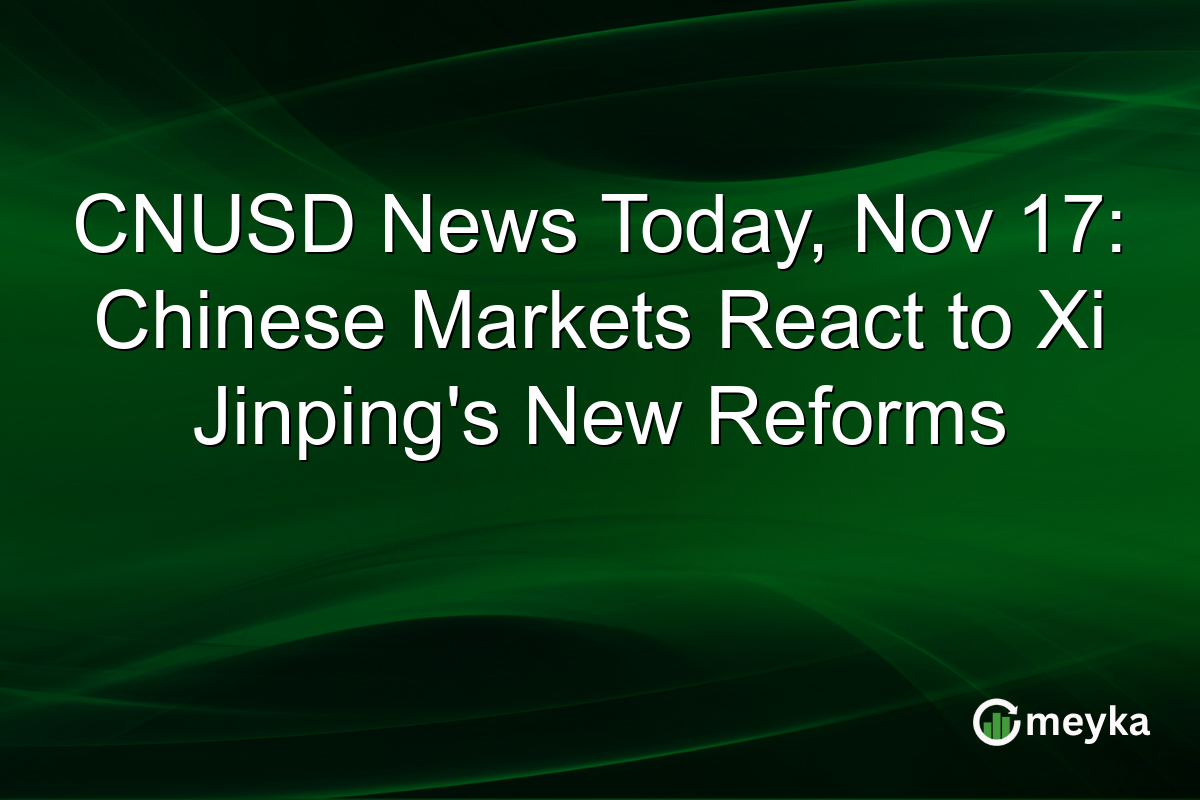CNUSD News Today, Nov 17: Chinese Markets React to Xi Jinping’s New Reforms
Recent policy shifts by President Xi Jinping have stirred the Chinese markets significantly. As China’s economic landscape transitions, investor sentiment is closely tied to the latest reforms, driving notable fluctuations. Today, we explore how these changes are affecting market trends and what it means for future economic growth. With Japan’s economy closely linked to China’s activities, these developments are critical.
Continue Reading on Meyka
This article is available in full on our main platform. Get access to complete analysis, stock insights, and more.
Read Full Article →





